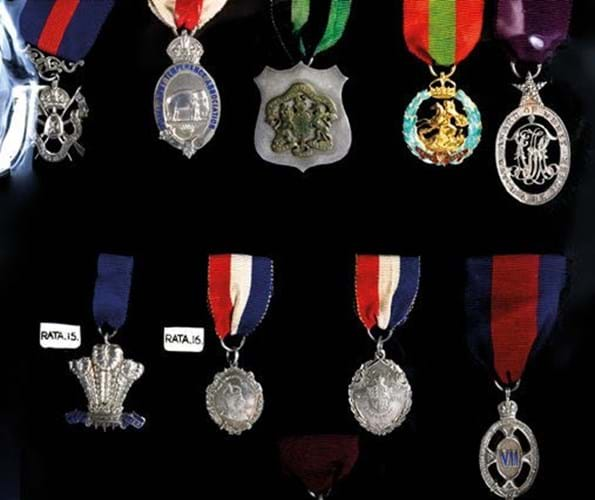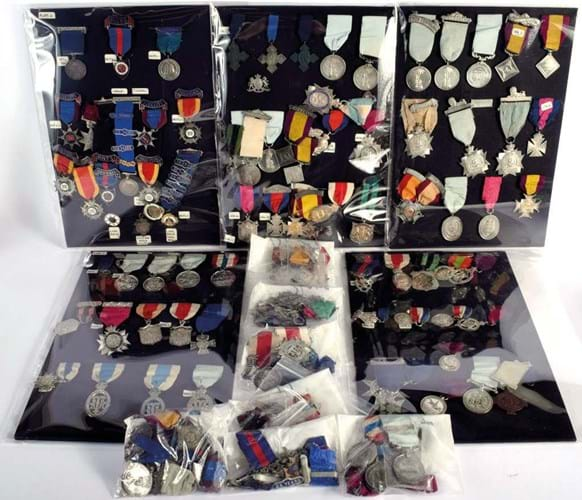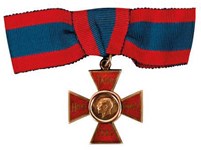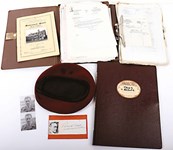However, an extensive abstinence movement existed in the British Army in India during the 19th century, as obvious from a lot sold at Hannam’s (23% buyer’s premium) of Selborne, Hampshire, on February 23.
It was comprised of up to 140 abstinence medals in various forms and sizes.
With much of the army’s crime and indiscipline stemming from alcohol abuse, regiments in India and at home in Britain tried hard to tackle the temptations of the bar and canteen.
One of the earliest army temperance societies was established in Burma by Lieutenant (later General Sir) Henry Havelock of the 13th Regiment in 1823. The first such society in India was founded in Calcutta on August 29, 1832, and by 1836 it was believed that there was barely a regiment without one.
By 1844 it was recorded that 3551 soldiers had joined such groups before Wellington dealt the cause a body blow by outlawing regimental temperance societies.

Detail from a group of Indian army abstinence medals – £4700 at Hannam’s.
It was 15 years before such activity began again in the army, societies being formed in India and in the Cape, and in 1862 the Soldier’s Total Abstinence Association was founded and spread widely.
In 1867 silver medals began to be awarded to abstainers of 12 months’ standing and by 1874 it was estimated there were more than 8000 abstaining soldiers.
The medals at Hannam’s had been bought at a US auction by the vendor. Estimated at £80-100, the lot sold for £4700 to a UK buyer via thesaleroom.com.















